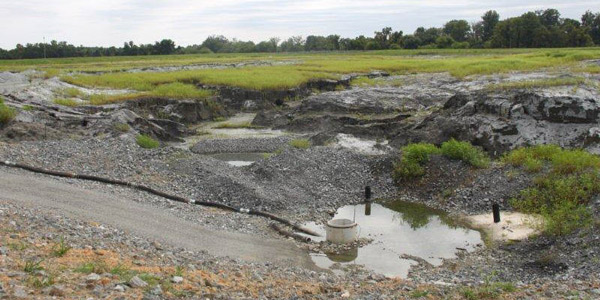By Rory D. Sweeney
Duke Energy executives used Thursday’s quarterly earnings call to outline a vision for expanding its solar generation assets through recently enacted legislation in North Carolina.
The nation’s second-largest utility reported earnings of $686 million ($0.98/share) in the second quarter on revenue of almost $5.6 billion, a jump from $509 million ($0.74/share) on revenue of $5.2 billion a year earlier.
Adjusted diluted earnings for the quarter were $1.01/share, compared with $1.07/share a year ago.
Duke spent nearly a year fighting for the “Competitive Energy Solutions for North Carolina” plan, which was signed into law by Gov. Roy Cooper (D) on July 27 (House Bill 589). The law establishes competitive bidding for most utility-scale solar projects in the state and allows for utilities to use the state’s fuel cost rates to recover cost for facilities contracted under the Public Utility Regulatory Policies Act. It also reduces mandatory PURPA contracts from 15 years to 10 and places an 18-month moratorium on wind development in the state.
Pathway for Solar

Duke Chairman and CEO Lynn Good praised the legislation for providing the company a pathway to developing almost 900 MW of solar generation and acquiring more. The law includes a commitment from Duke to seek 2,660 MW of new renewable energy by mid-2021. The company is permitted to compete for 30% of that goal and may buy other approved projects to expand its ownership beyond the 30% cap. Without the legislation, Duke would have little control over the projects’ development but would be required by PURPA to purchase the power.
“The law also allows for the recovery of costs associated with these projects through a new rider to be established by the [North Carolina Utilities] Commission. The competitive bidding process will ensure that new renewables are brought on to the system at market-based rates, delivering nearly $1 billion in savings for our customers over the next decade,” Good said. “In our five-year plan, we have something like $400 million of capital directed towards that type of investment in the Carolinas. So, we do have more investment opportunities than we imagined.”
Additionally, company officials argued that proposed rate increases for coal ash disposal will ultimately benefit customers. The company has been dealing for years with issues regarding leakage from ponds used to store residual ash at its coal-fired generators. It has set aside $500 million for resolving the disposal and contamination issues and has asked for another $195 million from ratepayers in cases filed with the NCUC in June and July.
If approved, the requests would include recovery for a wastewater treatment facility at the Mayo plant in Roxboro, N.C., and an estimate of ongoing costs for closing the ponds.
“This approach would allow us to recover our estimated costs as incurred, reducing our financing costs and ultimately benefiting our retail customers,” Duke CFO Steve Young said. “If approved, this will build upon the recent third quarter, allowing both [the Duke Energy Carolinas and Duke Energy Progress subsidiaries] to recover costs for coal ash remediation from wholesale customers. We believe this was a prudent approach to managing these expenses and maintaining competitive rates for our customers.”
Good also called the transition to electric vehicles “positive” but wasn’t overly enthusiastic.
“I think it will grow over time. I don’t see it as a step change though in load growth because of all the other factors impacting load, including energy efficiency and other items,” she said.
Misgivings on Wind Ban

In signing HB 589, Cooper criticized the last-minute addition of an 18-month bar on wind development, issuing an executive order to mitigate the effects of the moratorium.
Cooper said he signed the bill because of its importance to the state’s “already booming” solar industry. “I strongly oppose the ugly, last-minute, politically motivated wind moratorium,” he said. “However, this fragile and hard-fought solar deal will be lost if I veto this legislation and that veto is sustained.”
Supporters of the moratorium, which bars approval of new wind farms before the end of 2018, said it was necessary to allow the legislature time to study the impact of wind turbines on the state’s military bases.
Cooper’s executive order directs the state Department of Environmental Quality “to continue recruiting wind energy investments and to move forward with all of the behind-the-scenes work involved with bringing wind energy projects online, including reviewing permits and conducting pre-application review for prospective sites.”
“I want wind energy facilities to come online quickly when this moratorium expires so our economy and our environment can continue to benefit,” Cooper said.





